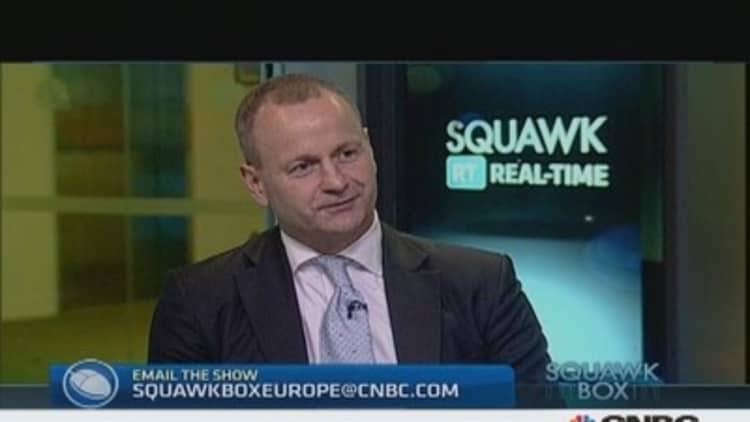The dangerous link between fragile banks and governments in the euro zone has been detailed in a new transparency report by the European Banking Authority (EBA).
The share of bonds issued by sovereigns under stress held by domestic banks increased markedly between December 2010 and June 2013, the report released late Monday said.
Following the financial crash of 2008, nations across the globe have been busy restructuring and rebalancing their economies. Substantial sovereign and bank debt led the euro zone to fall into a prolonged recession in 2011 as the extent of its problems became apparent.
The European Central Bank (ECB) has continued to pump liquidity into the economy via its long term refinancing operations. Under these schemes, struggling banks received cheap loans if they were unable to fund themselves through capital markets.
(Read More: Euro zone bond rally may be ending: Here's why)
With sovereign bonds - even from struggling euro zone governments - classed as risk-free under banking regulations, banks have bought government debt issued by their home countries. This gave them a higher yield on the cheap cash obtained from the ECB and helped lower the countries' borrowing costs.
However, many analysts warn that the link between weak governments and weak banks is creating a "doom loop" with the potential for banks and sovereigns to drag one another down during a crisis.
The report – which details the exposure from 64 European banks from 21 countries - shows that the net exposure of banks to sovereign debt fell 9 percent in 2011, but then rose 9.3 percent in the 18 months to June this year.
Ninety nine percent of the 23 billion euros of Greek government debt held by European banks was held by its domestic lenders, the figures from June show. That is an increase from a 67 percent figure in June 2010.
Spanish banks hold 89 percent of Spain's government's debt, according to the EBA, whilst Italy's banks hold 89 percent of Italian debt and Cypriot banks hold 84 percent of Cyprus' sovereign debt. German banks hold less German sovereign debt, down to 72 percent from 76 percent in 2010. Finnish lenders, in contrast, hold just 6 percent of their own government's bonds.
(Read More: Take cover! Bond market 'hell' could be on the way)

Steven Saywell, global head of FX strategy at BNP Paribas told CNBC that to suggest that EU officials had purposely created this loop to help governments finance their debt would be "going too far". He added that the extra liquidity had calmed bond markets, however.
"The real crisis we had here in Europe was with the sovereign bond market," he told CNBC Tuesday.
"What we needed were buyers here with these sovereign bonds. The spread has changed dramatically now so they've probably done what is required . So I think from a safety perspective there's not the risk we had 18 months as far as the sovereign bond market is concerned."
Meanwhile, Bill Blain, senior fixed income broker at Mint Partners told CNBC last month that investors looking across the Atlantic at the bonds of southern European nations should be warned.
(Read More: How the 2020s could see Europe put the US in the shade)
He expects the European Central Bank to inject more liquidity into the markets via its long-term refinancing operation and to opt for negative deposit rates, which would see European banks charged interest on the reserves they keep at the ECB.
As a result, European lenders would use more money to buy up peripheral debt, according to Blain, thus increasing the link between European banks and their exposure to the region's fragile economies.
"They are not sovereign bonds anymore, they are bonds issued by sovereign entities linked to a currency they don't control," he said. "If things turn badly, let's say at the result of another rout in the U.S. bond markets when the taper finally begins...then we get the whole crisis reignited," he said on November.
— CNBC.com's Matt Clinch. Follow him on Twitter @mattclinch81


